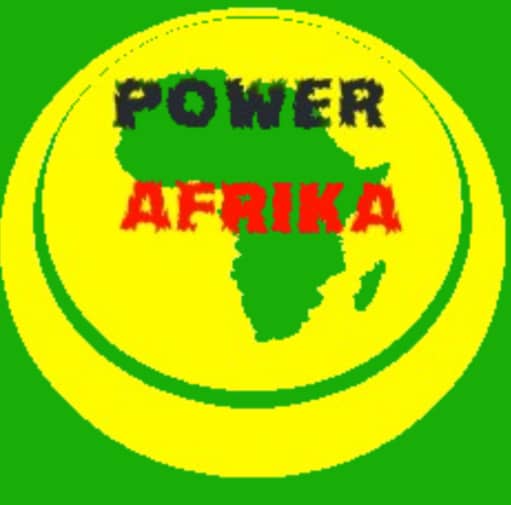
On April 14, 2025, Algeria made headlines by ordering 12 French embassy officials to leave the country within 48 hours, a bold move that has reignited diplomatic tensions between Algiers and Paris. This decision, as reported by Al Jazeera, came in response to France’s arrest of an Algerian consular official accused of involvement in the 2024 kidnapping of Amir Boukhors, a prominent Algerian government critic and TikTok influencer known as “Amir DZ,” who was granted asylum in France in 2023. France retaliated on April 15, expelling 12 Algerian diplomatic staff and recalling its ambassador from Algiers, escalating a crisis that threatens to unravel months of attempted reconciliation between the two nations .
The roots of this conflict run deep. Algeria’s foreign ministry described the arrest of its official as a “vile act” and a violation of diplomatic norms, blaming French Interior Minister Bruno Retailleau for orchestrating what they called an attempt to “humiliate Algeria” . French authorities, however, indicted the official—along with two other Algerian nationals—on charges of “arrest, abduction, unlawful confinement, and terrorist conspiracy,” citing the abduction of Boukhors in a Paris suburb last year . French Foreign Minister Jean-Noël Barrot called Algeria’s expulsion “unjustified,” warning of consequences and emphasizing that dialogue “cannot go one way”. The situation is further complicated by historical tensions, including France’s 2024 decision to back Morocco’s autonomy plan for Western Sahara, a move that infuriated Algeria, which supports the pro-independence Polisario Front .
This diplomatic spat highlights a broader struggle for African sovereignty in the face of lingering colonial influences. Algeria’s decision to expel French officials is a powerful assertion of its independence, a reminder of the scars left by France’s colonial rule from 1830 to 1962. Yet, it also raises questions about the future of Franco-Algerian relations, which had shown signs of thawing just weeks earlier when Barrot met with Algerian President Abdelmadjid Tebboune . The tit-for-tat expulsions signal a fragile relationship, one that could impact trade, security cooperation, and cultural exchanges across the Mediterranean.
PowerAfrika’s Take: Sovereignty Must Prevail
At PowerAfrika, we see Algeria’s bold stance as a necessary step in defending African sovereignty against external overreach. While diplomacy requires dialogue, Algeria’s response sends a clear message: African nations must not tolerate violations of their dignity or autonomy, even from former colonial powers. This resonates with our mission to advocate for African self-determination, much like our petition to rename Kotoka International Airport in Ghana—a symbolic act of reclaiming history and identity. We invite you to join this movement by signing our petition at https://powerafrika.com/rename-kotoka-airport/.
Amplify the Story with PowerAfrika’s Tools
The Algeria-France crisis is a story of resilience and resistance, one that deserves to be shared widely. Create a compelling video to highlight this moment of African defiance using Renderlion, an AI video generator that can help you craft visuals as powerful as Algeria’s stance. Whether you’re documenting diplomatic history or advocating for sovereignty, Renderlion ensures your message resonates without slowing down your site (https://renderlion.com/?via=asafo). Want to share quick, engaging snippets of this story on social media? Use AiReelGenerator to create fast-loading reels that capture the drama of this standoff, inspiring your audience to stand with African nations (https://aireelgenerator.com?refid=). And if you’re inspired to lead change like Algeria’s leaders, the MBL program offers resources to develop your leadership skills, empowering you to advocate for African sovereignty in your own community (https://philjohnson1.podia.com/a/2efwx).
Connecting the Dots: PowerAfrika’s Commitment to African Autonomy
This story echoes themes we’ve explored in previous PowerAfrika posts, such as our piece on Ghanaian students advocating for systemic change, where we highlighted the power of African youth in driving self-determination (https://powerafrika.com/ghanaian-students-advocacy/). Just as Algeria stands firm against external interference, we at PowerAfrika are committed to amplifying African voices that challenge colonial legacies and assert their right to sovereignty. This diplomatic crisis also reminds us of the broader struggle for African unity, a topic we’ll continue to explore in future posts.
Little Known Facts About Algeria-France Relations
- Colonial Legacy: France’s colonial rule over Algeria lasted 132 years, from 1830 to 1962, leaving deep scars that continue to shape bilateral relations today.
- Western Sahara Dispute: Algeria’s support for the Polisario Front in Western Sahara has been a major point of contention with France, especially after France’s 2024 endorsement of Morocco’s autonomy plan.
- Amir DZ’s Influence: Amir Boukhors, the influencer at the center of this crisis, has over 1 million TikTok followers, making him a significant voice for Algerian dissidents in exile .
